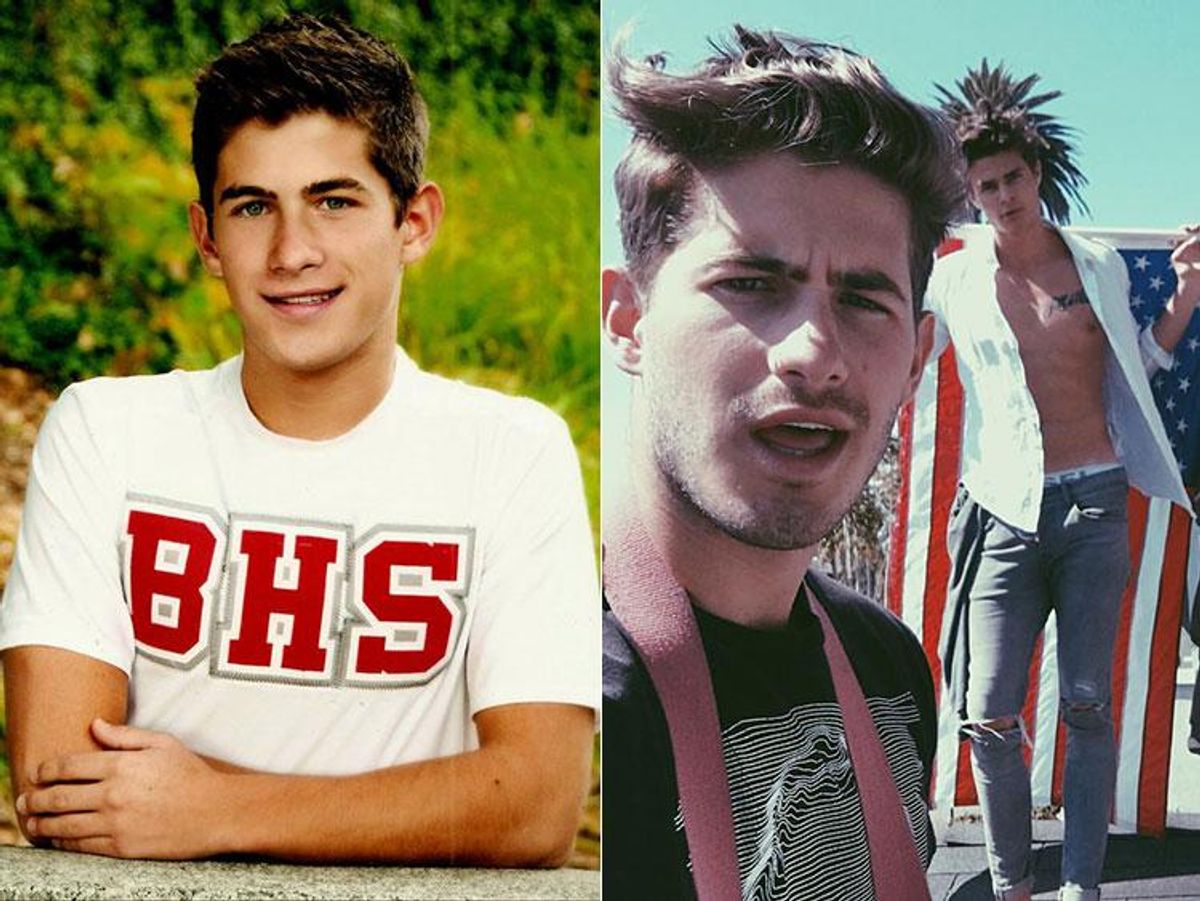In this four-part series Maxwell Poth tells his own story as well as sharing the stories of three other Mormon teens. All photography courtesy of Maxwell Poth.
Suicide is the number 1 cause of death for people ages 10-17 in the state of Utah, nearly tripling since 2007. This past summer alone, at least four LBGTQ teens in Utah took their own lives. We cannot know how many more suicides went unrecognized or unreported. It is only when a teen is out and is visibly struggling in the blazes of institutionalized homophobia that the media takes notice. Despite this unforgivable loss of life, the state continues to fence the issue, blaming weather rather than taking a good look at the pandemic homophobia in Utah's youth culture.
My name is Maxwell Poth. I am a survivor. Since leaving Utah in 2015, I have been building a life and career for myself in Los Angeles. I am a photographer, and I celebrate my identity in my work, transcending sexual norms and using my camera to lionize queer culture and beauty. The gay hive that congregates in Los Angeles's professional scene is a far cry from the little city of Bountiful, Utah, where I grew up. Bountiful is deeply influenced by its dense Mormon population. As you can imagine, my lifestyle and my art were never going to be widely accepted by this religious community.

For most of my childhood, I was raised Mormon. Even though I never entiirely believed in the religion, it was forced into my life and my family's life.The influence the faith had in our community created unavoidable social pressures, swallowing anything in its path deemed unrighteous.
My coming-out story was rare. The fight for acceptance wasn't against my peers. It was against myself. I let my religious surroundings influence my thoughts. I cried, prayed, and personally destroyed myself internally. I was my own bully. It is true I was bullied and harassed by others, but it wasn't their ignorance that broke me. It was my ignorance. Telling myself I was worthless. Alone. Damned to hell.

The summer going into my senior year of high school I met my first love, Alexander. Because of Alexander, I became comfortable with myself. I not only accepted his love for me, but I accepted who I was. The strange thing is that it was never really talked about. The students knew, the faculty knew, but they all chose to ignore that I was gay -- as if they forgot.

That year is when I became the real me. That year I stopped crying myself to sleep. I stopped praying to a God I didn't believe in. I stopped telling myself I wasn't normal -- because I was normal. That was my transition into acceptance. Regardless if others "forgot," it didn't matter what they remembered. What mattered is I was happy.
Humanity can see the physicality of destruction. The unrecognizable internal destruction is what's most harmful. It wasn't until I took pride in myself that my journey to acceptance made me strong. If you let the religious values of others manipulate who you are and how you think, then are their values truly valuable? A religion that condemns shouldn't be called a religion at all. Regardless of whether the Mormon faith takes blame for the loss of these lives, LGBTQ people can take action.
I took photographs of three teenage boys during my last visit back home: Carter, Nathan, and Holden. During their photo shoots I couldn't help but ask what it was like for them being openly gay in their communities. What they had to say was very encouraging. So I asked them if they could quickly share their personal stories about what it's like currently growing up in Utah.

Being a gay artist I find it important to use my art and influence to show humanity the strengths instead of the weaknesses. Through their stories and my art I plan to make an impact.
Their stories outweigh the archaic ways our society once was and show that our youth is slowly evolving to proud individuals. The minds of so many young Americans are changing. If it weren't for their predominant guardians/religion telling them what's right or wrong, they would surely evolve to care about how someone identifies and just let them live their lives. As it should be. Regardless of those lessons, they are beginning to not care. It is becoming normal. Carter, Nathan, and Holden can help prove to you that change is on the way.

These photos show three intelligent human beings who are proud and inspiring. They are great examples for other teenagers who are struggling at home, school or with themselves. I am so proud and honored to have met them and I hope you enjoy what they have to share.
I hope this project reaches to struggling teens, whether they are gay, transgender, lesbian, or nonbinary. I hope this small yet powerful article can make a difference.
If you are struggling with suicidal thoughts or other problems that may be affecting your mental health there are places, that can help you, one being the Utah Department of Health. It provides a 24/7 hotline, (801) 587-3000. If you do not live in Utah, you may call the National Suicide Prevention Lifeline, (800) 273-TALK (8255). Utah also is home to the Utah Pride Center, which offers specialized counseling, therapy, support groups, and much more. You can call the center or make an appointment at (801) 539-8800 or email therapy@utahpridecenter.org. Again if you are in other locations please look up your nearest LGBTQ center for help and support.
You can see more of Maxwell's work here: The Adorable Life and Exquisite Photos of Maxwell Poth, and on his website. See Carter, Nathan, and Holden's stories and photos over the next three days.























































































